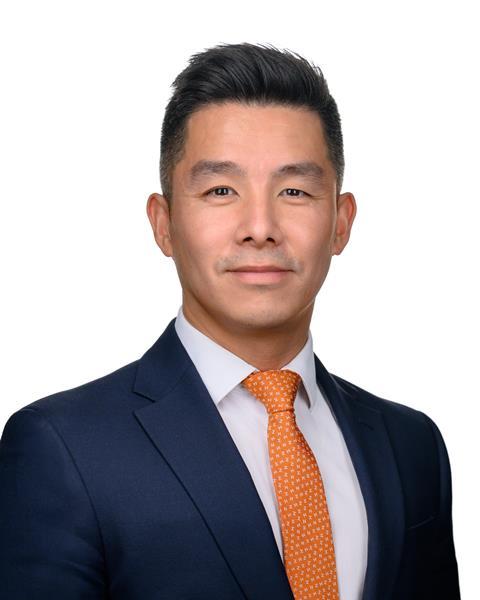Partner at Reeds Solicitors LLP, Bristol
The first ‘clients’ I ever served were customers queuing at my parents’ takeaway in the Welsh Valleys. I was 12, standing on a stool behind the counter, taking orders and making change with a till drawer that always stuck. I learned to think fast when the Friday night rush hit, to read people in the time it took them to decide what they wanted to order and to hold my own with anyone. Those early lessons in communication, confidence and keeping calm under pressure would prove invaluable years later in the courtroom.

My parents came to the UK from Hong Kong in the 1970s, determined to build a future in a country that wasn’t always welcoming. My father worked tirelessly and became a well-known figure in the Chinese diaspora community, particularly in London. He understood the importance of connections – of knowing people and being known for the right reasons. Through him, I learned that relationships matter as much as hard work and that integrity opens doors that talent alone can’t.
From an early age, I wanted to be a lawyer. I was drawn to justice, fairness and speaking up for those who couldn’t speak for themselves. But I also doubted whether I was cut out for it. In lecture halls and at networking events, I rarely saw anyone who looked like me. I was the first in my family to go to university, and the weight of that felt both exciting and daunting. That changed after I graduated, when a close family friend – a criminal defence barrister – invited me to shadow their work. I watched cases unfold in court, saw the skill and composure it took to cross-examine, and realised this was exactly where I wanted to be.
The journey from trainee to partner has been anything but easy. There were long nights, demanding clients and cases that consumed months of my life. Becoming a partner is as much a personal achievement as a professional one – an acknowledgment from my peers that my contribution matters. It also stands, I hope, as an example to others from working-class or immigrant backgrounds: the legal profession might not always feel like it was built for you, but with persistence, you can make it your own.
'I was drawn to justice, fairness, and speaking up for those who couldn’t speak for themselves. But I also doubted whether I was cut out for it'
In Reeds’ Complex Crime team, I now work on cases that stretch across borders, jurisdictions and time zones. One of the most challenging was a multi-jurisdictional investigation led by Interpol, involving the FBI, the US Department of Justice, the National Crime Agency, and the Australian and Brazilian federal police. I remember the first time the evidence files arrived, there were encrypted hard drives containing hundreds of thousands of pages. Somewhere in that mountain of documents was the detail that could make or break the case. It was a slow, painstaking process: combing through records, understanding different legal systems’ disclosure rules and building a strategy that would stand up in court.
Many of my cases now involve clients linked to the Chinese underground banking system and daigou networks – informal ways of transferring money internationally without going through banks. For some, it’s a lifeline: a faster, cheaper way to send support to family overseas. But because these systems can be used to move illicit funds, even entirely innocent users can find themselves under investigation. My ability to speak Cantonese, and my understanding of the cultural context, often makes the difference between a client feeling isolated and a client feeling understood.
Working at this level means I often liaise with law enforcement agencies here and abroad. There are moments – liaising with foreign enforcement agencies, reviewing evidence from three continents – where I have to remind myself of that 12-year-old in the takeaway, wondering if law was too big a dream. Those are the ‘pinch me’ moments.
It’s not a nine-to-five job. The stakes are high, the timelines unpredictable and the phone doesn’t respect evenings or weekends. To stay sharp, I make time for the gym – it’s my hour of clarity, where the noise drops away and I can reset. Physical strength and mental resilience go hand in hand in this job.
No two days are alike. One day might be spent dissecting a forensic accounting report in a high-value fraud case; the next, preparing a client for a critical interview where every word counts. The variety keeps me engaged, but it’s the purpose that keeps me committed. Despite the challenges, despite the exodus of lawyers from legal aid work, I still believe in its value – because access to justice should never depend on your bank balance.































No comments yet